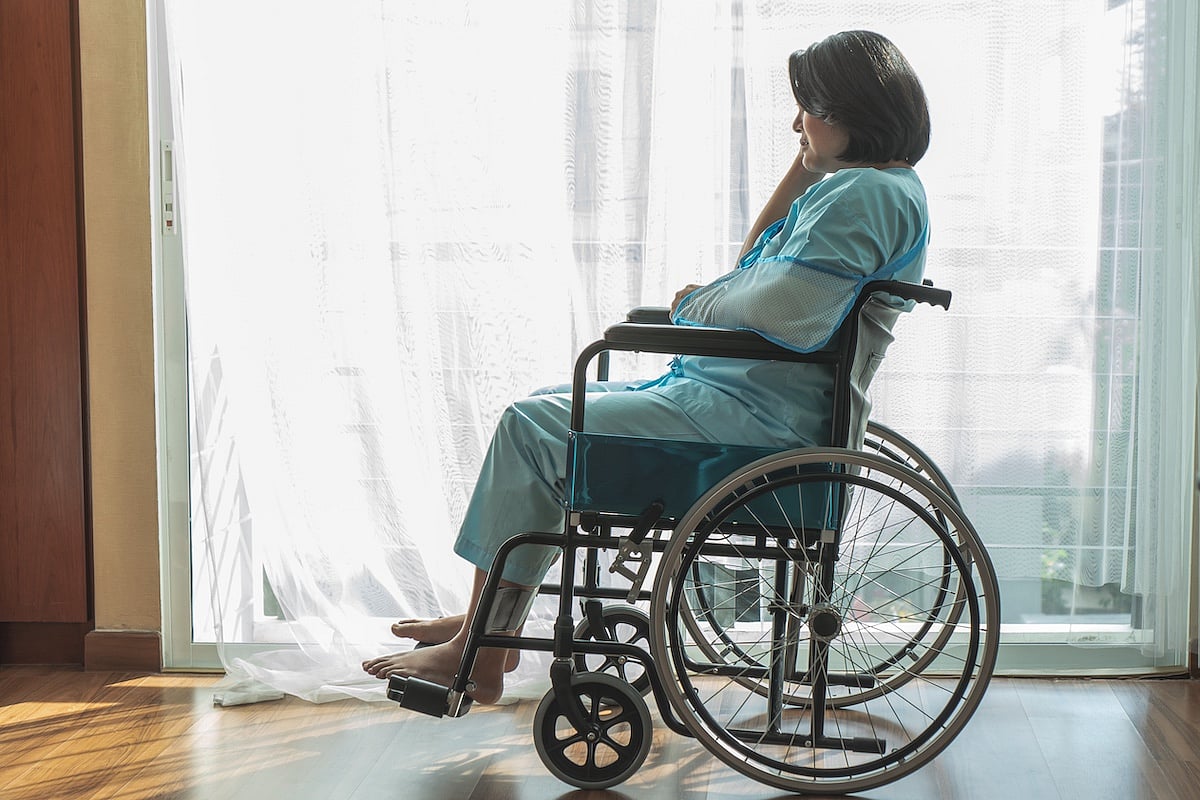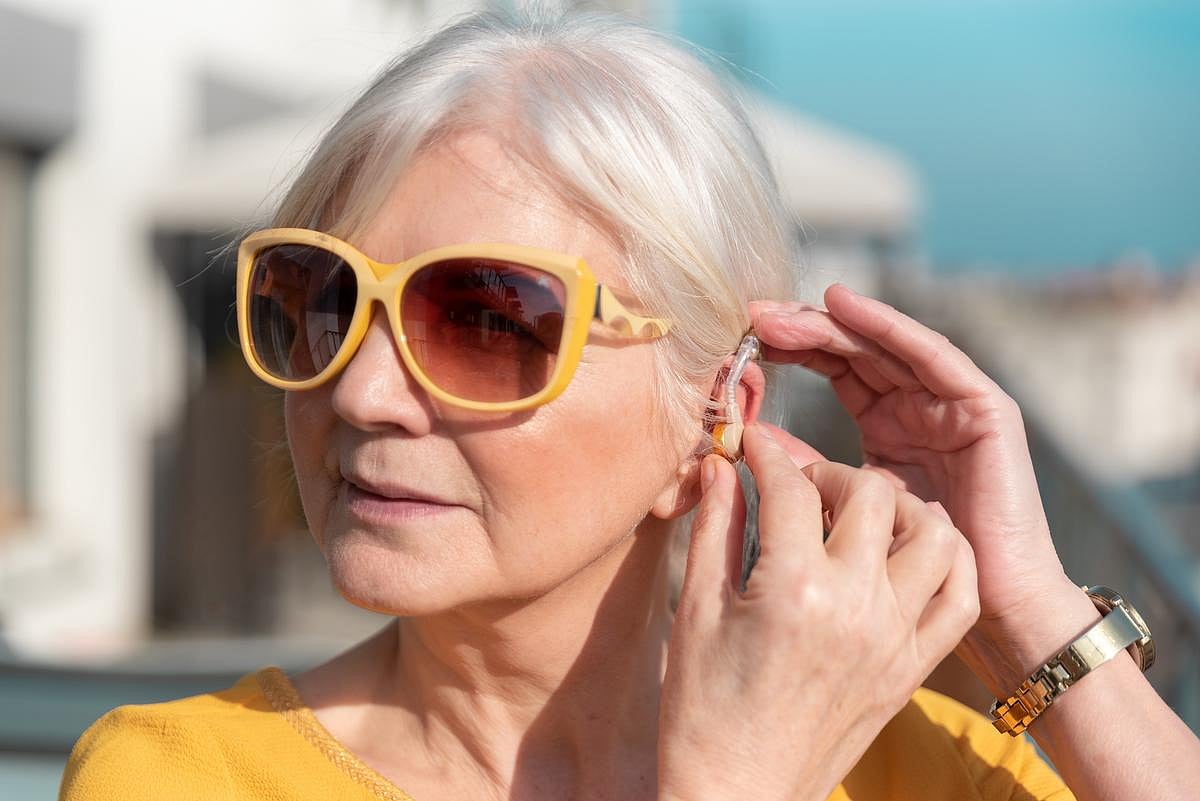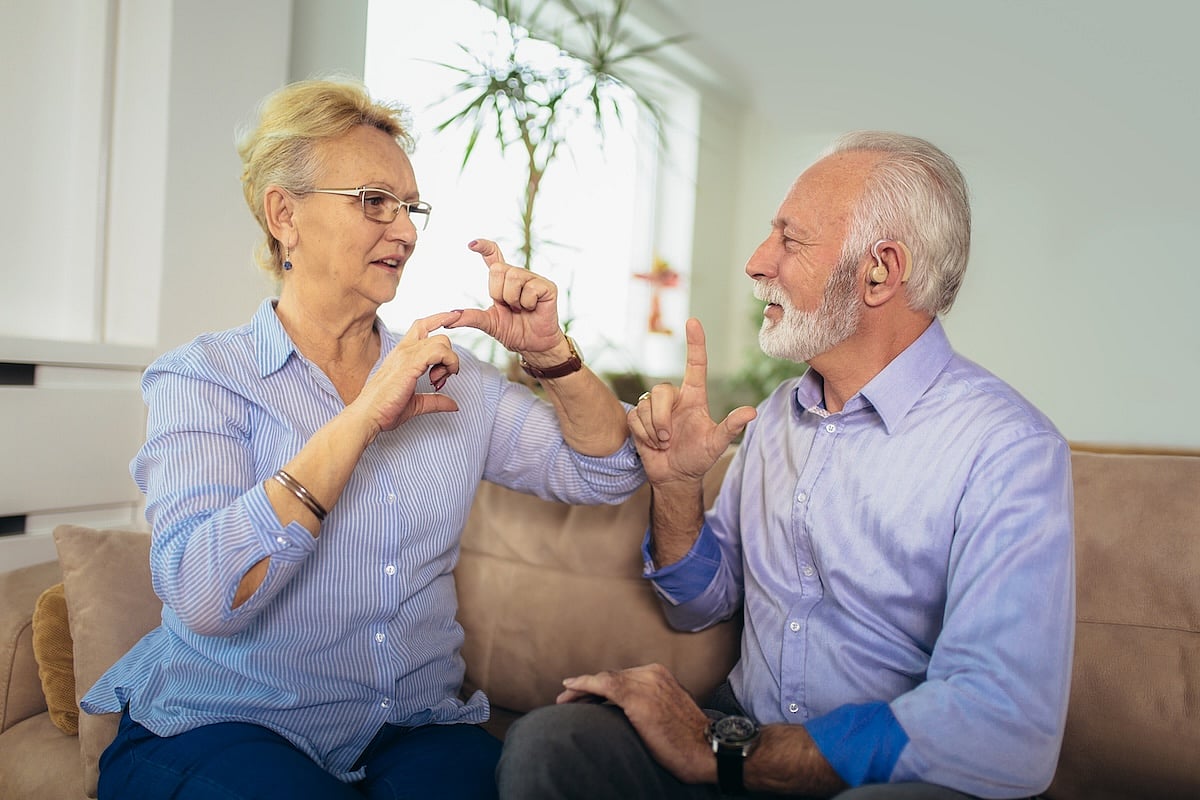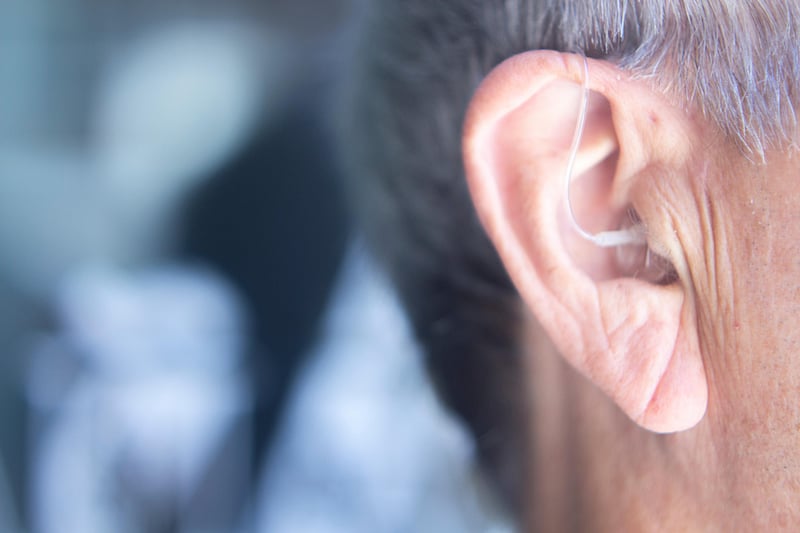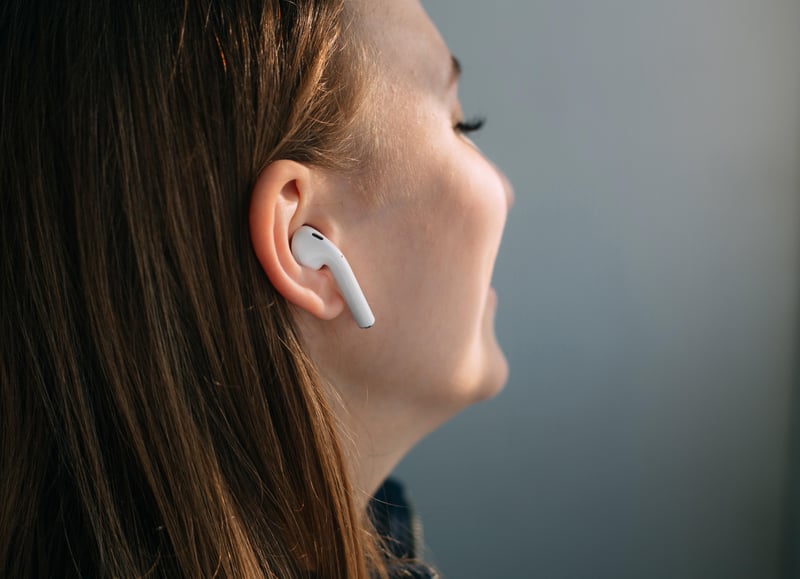Get Healthy!
Results for search "Hearing Aids".
21 Aug
Don’t Ignore Hearing Loss—Your Brain May Depend On It
A new study finds early intervention for hearing loss significantly reduces the risk of dementia.
Health News Results - 19
Some seniors are loathe to don a hearing aid, worried that the devices will be a hassle or make them look old.
But that hearing aid might help them avoid dementia, a new study says.
...
- Dennis Thompson HealthDay Reporter
- |
- January 15, 2026
- |
- Full Page
Americans may be getting older and need help doing things that were once routine, but a new survey finds only a fraction of seniors see themselves as having a disability.
"It’s a familiar story," Megan Morris, director of the Disability Equity Collaborative at New York University, told KFF Health News
- Carole Tanzer Miller HealthDay Reporter
- |
- December 12, 2025
- |
- Full Page
Some folks won’t use hearing aids because they’re worried the devices will make them look old or get in the way of their social life.
Nothing could be farther from the truth, a new evidence review says.
Hearing aids dramatically improve a person’s social engagement ...
- HealthDay Reporter
- Dennis Thompson
- |
- July 3, 2025
- |
- Full Page
Could loneliness occur for some older folks because they can’t hear well enough to maintain essential social connections?
Hearing aids appear to be an effective method of countering an epidemic of loneliness among U.S. seniors, a new study says.
Seniors given hearing aids retained more friends than others who weren’t provided the devices, researchers reported May 1...
- HealthDay Reporter
- Dennis Thompson
- |
- May 13, 2025
- |
- Full Page
An older person’s hearing might be a harbinger of heart health, a new study says.
People who experience hearing loss are more likely to develop he...
- HealthDay Reporter
- Dennis Thompson
- |
- April 10, 2025
- |
- Full Page
Medicare Advantage isn’t that great an advantage for seniors compared with traditional Medicare, researchers say.
The privatized form of Medicare offers more supplemental benefits than traditional Medicare, including dental, vision and hearing benefits.
But many seniors aren’t...
- HealthDay Reporter
- Dennis Thompson
- |
- January 21, 2025
- |
- Full Page
If you're over 65, you likely struggle sometimes to hear conversations clearly, but ignoring that may prompt even more serious health problems, experts say.
If left unchecked, hearing loss can lead to social isolation and depression -- two conditions known to raise dementia risk, said Dr. Leah Ross, a physician in the Di...
- HealthDay Reporter
- Robin Foster
- |
- February 5, 2024
- |
- Full Page
Folks think of big city life as an ear-blasting festival of noise -- taxi horns honking, jackhammers pounding, police sirens wailing and jet planes roaring overhead.
But rural residents actually have a higher rate of hearing loss in both ears than city dwellers do, a new study finds.
Men are also more likely than women to suffer hearing loss, with the highest rates seen among white ...
- HealthDay Reporter
- Dennis Thompson
- |
- January 25, 2024
- |
- Full Page
A hearing aid's first purpose is fairly obvious, but a new study argues that the devices also provide an important second benefit -- a longer life.
"We found that adults with hearing loss who regularly used hearing aids had a 24% lower risk of mortality than those who never wore them,"said lead researcher Dr. Janet Choi, an oto...
- HealthDay Reporter
- |
- January 4, 2024
- |
- Full Page
It's now been possible to buy a hearing aid over-the-counter for nearly a year, but few Americans are doing so.
More education is needed about just who these over-the-counter (OTC) hearing aids can help, according to the American Speech-Language-Hearing Association (ASHA). It polled more than 2,200 Americans about the issue in late June and early July.
Just 2% of respondents aged 40...
- HealthDay Reporter
- Cara Murez
- |
- September 13, 2023
- |
- Full Page
If you're hard of hearing and at higher risk for dementia, hearing aids could be a win-win.
New research, published July 18 in The Lancet, finds hearing aids might reduce thinking declines in older adults --but only in those at higher risk of dementia.
"Th...
- HealthDay Reporter
- Cara Murez
- |
- July 18, 2023
- |
- Full Page
Can treating hearing loss lower your chances of developing dementia down the road?
Maybe, claims new research that found that folks who are experiencing hearing loss and don't use a hearing aid may have a higher risk of developing dementia than people who use hearing aids and those without hearing loss.
The study wasn't designed to say how untreated hearing loss may up the risk...
- HealthDay Reporter
- Denise Mann
- |
- April 14, 2023
- |
- Full Page
Could losing your hearing as you age be a harbinger of dementia?
Maybe, suggests new research that found that older people who had trouble hearing were more likely to develop dementia down the road. But there's good news with the bad: Hearing aids -- which are now available over-the-counter at much lower prices -- may reduce this risk.
"There is evidence that hearing loss cause...
- HealthDay Reporter
- Denise Mann
- |
- January 17, 2023
- |
- Full Page
Over-the-counter hearing aids now offer older Americans a more affordable option to deal with mild to moderate hearing loss.
But some hard-of-hearing seniors already tote around a device that might help just as much -- the wireless earbuds they use with their smartphone or computer.
Commercial earbuds can perform as well as hearing aids in certain settings, researchers concluded in ...
- HealthDay Reporter
- Dennis Thompson
- |
- November 17, 2022
- |
- Full Page
It's official: Older Americans with hearing loss can now stroll into a big box store or pharmacy -- or just visit a website -- and buy hearing aids without a prescription.
The U.S. Food and Drug Administration recently approved this
Adults with hearing loss soon will be able to amble into a big box store or pharmacy -- or just visit a website -- and buy hearing aids without a prescription.
Over-the-counter hearing aids will be on the market by mid-October, available for purchase ...
- HealthDay Reporter
- Dennis Thompson
- |
- September 27, 2022
- |
- Full Page
Affordable over-the-counter hearing aids will bring relief to millions of Americans suffering from hearing loss by mid-October, under a landmark proposal just announced by the U.S. Food and Drug Administration.
The final rul...
- HealthDay Reporter
- Dennis Thompson
- |
- August 16, 2022
- |
- Full Page
Affordable over-the-counter hearing aids could soon bring relief to millions of Americans suffering from hearing loss, under a landmark proposal announced Tuesday by the U.S. Food and Drug Administration.
The proposal would create a category of hearing aids that could be sold directly to consumers, without either a medical exam or a fitting by an audiologist.
Until now, folks suffer...
- HealthDay Reporter
- Dennis Thompson
- |
- October 19, 2021
- |
- Full Page
Until now, folks suffering from hearing loss typically have had to fork out thousands of dollars for a device that could be adjusted only by a professional audiologist.
No wonder that only one-quarter of the nearly 29 million U.S. adults who could benefit from a hearing aid have actually tried one, according to the U.S.


